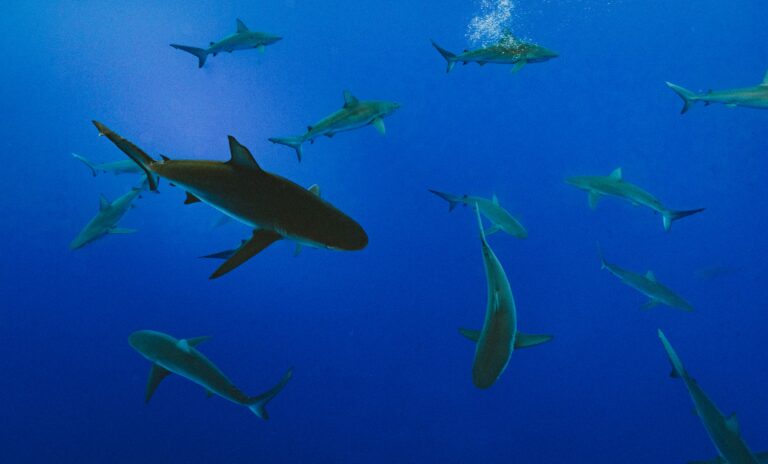By Courtney Cooper
The Relationship Between Sharks and the Fishing Industry
Sharks are essential for sustaining the health and equilibrium of oceanic ecosystems. As top-tier predators, they play a crucial role in regulating the populations of various species, thereby supporting biodiversity and preventing the overpopulation of certain marine organisms. The intricate relationship between the global fishing industry and shark populations is profound, encompassing significant ecological, economic, and cultural dimensions. In South Africa, this dynamic is particularly evident, showcasing the intricate relationship between the fishing industry and shark populations within the broader global context.
We also discuss further shark facts that you might be interested in! Apex Shark Expeditions provides the best shark cage diving Cape Town experience.
How Sharks Impact the Fishing Industry

Sharks as Essential Marine Ecosystem Managers
Sharks contribute to ocean health by preying on weak, ill, or slow individuals in fish populations, which enhances the genetic diversity and vitality of marine species. Studies show that without sharks, there is a risk of “trophic cascades,” where imbalances lead to the overpopulation of some species and the decline of others. For example, a study from the University of Miami found that the depletion of shark populations can lead to a boom in smaller predators, which then decimate populations of herbivorous fish that graze on algae. Without these algae-grazers, coral reefs suffer, impacting species diversity and the marine economy that depends on healthy reef systems.
Global Impact of Overfishing on Sharks
Globally, shark populations face significant threats from overfishing, particularly due to the high demand for shark fins, liver oil, and cartilage. It’s estimated that approximately 100 million sharks are killed annually, either through direct capture or as bycatch in commercial fishing operations. Fisheries’ impact on sharks is intensified by practices like longline and trawling, which indiscriminately capture numerous shark species as they target fish stocks for commercial markets. Industrial fishing vessels also often operate without adequate regulation, leading to unsustainable levels of shark harvest that affect populations worldwide.
In South Africa, shark bycatch remains a significant concern, especially within the country’s thriving tuna and swordfish fisheries. A report by the South African Department of Environmental Affairs indicated that in some regions, shark bycatch constituted nearly half of the total catch, affecting key species such as the blue shark and the endangered shortfin mako. This bycatch implications for South Africa’s shark populations, which also face threats from the illegal shark fin trade.
The Economic Dimension: Sharks and Tourism vs. Fishing
In South Africa, sharks contribute not only to the marine ecosystem but also to the economy, particularly through the ecotourism industry. Shark diving, a popular attraction in locations like Gansbaai and Cape Town, generates millions in revenue each year, supporting local communities and raising awareness about shark conservation. A study by the University of Cape Town estimated that shark tourism in South Africa generates over 500 million ZAR annually, significantly benefiting the local economy. This revenue highlights the economic value of preserving sharks over targeting them as part of the fishing industry.
Apex Shark Expeditions provides the best shark cage diving in Gansbaai, as well as, shark cage diving in Simons Town. We also share insight into eco-friendly shark tourism.




